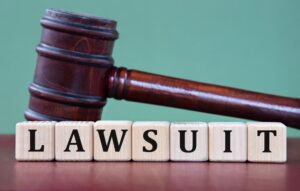Motorcycle accidents frequently happen when other drivers violate the rules of the road, such as by speeding, driving under the influence of alcohol, exhibiting road rage, or engaging in distracted driving. When motorcyclists suffer injuries in an accident, they can file a claim with the at-fault driver’s insurance company. However, if the insurance company denies the claim or significantly undervalues it, litigation may become necessary. This is when it’s best to speak with a skilled motorcycle accident lawyer.
Motorcycle accident litigation begins with filing a lawsuit in the state court system. The amount of time it takes to resolve a motorcycle accident lawsuit depends on several factors, including the parties’ willingness to resolve the case out of court, the amount of time it takes the injured motorcyclist to complete their medical treatment, and the jurisdiction where the case is pending.
A knowledgeable motorcycle accident attorney in Bentonville can streamline your case and pursue the settlement or litigation compensation you need as efficiently as possible.
Common Injuries in Motorcycle Collisions
 Motorcycle crashes can lead to a range of serious injuries due to the vulnerability of riders compared to those in enclosed vehicles, like cars, trucks, and SUVs.
Motorcycle crashes can lead to a range of serious injuries due to the vulnerability of riders compared to those in enclosed vehicles, like cars, trucks, and SUVs.
- One of the most frequent injuries sustained in motorcycle accidents is road rash. Road rash occurs when the skin scrapes against the pavement, leading to abrasions and deep lacerations. Depending on the severity, road rash can require extensive medical treatment, including skin grafts and rehabilitation.
- Fractures are another prevalent injury in motorcycle collisions. Riders often suffer broken bones, particularly in the arms, legs, and collarbone. These fractures can result from the strong force of the collision or from falling off the bike and hitting the ground. Severe fractures may require surgical intervention, leading to long recovery times and potential complications.
- Head injuries are also common – even among riders who are wearing helmets at the time of their motorcycle crash. Concussions, traumatic brain injuries (TBIs), and skull fractures can occur, significantly affecting cognitive function and quality of life. While helmets reduce the risk of severe head injuries, they do not eliminate them entirely.
- Spinal cord injuries are among the most serious consequences of motorcycle accidents. These injuries can lead to partial or complete paralysis, drastically altering a person’s life. Damage to the spinal cord may also result in chronic pain and the need for ongoing medical care.
- In addition to physical injuries, psychological repercussions should not be overlooked. Many riders experience post-traumatic stress disorder (PTSD) following a collision. Symptoms may include flashbacks, anxiety, and avoidance behaviors, which can affect daily life and relationships.
- Finally, internal injuries can occur in motorcycle accidents, particularly if the rider is thrown from the bike or collides with another vehicle. Injuries to organs, such as the lungs, liver, or spleen, can be life-threatening and require immediate medical attention.
Frequent Causes of Motorcycle Accidents
 Negligent driving is a leading cause of motorcycle accidents, often resulting in severe injuries or fatalities.
Negligent driving is a leading cause of motorcycle accidents, often resulting in severe injuries or fatalities.
- One common way negligent drivers cause motorcycle crashes is through distracted driving. Distracted driving can include texting, talking on the phone, or engaging with in-car technology. When drivers take their attention away from the road, they may fail to see a motorcycle, leading to collisions during lane changes or turns.
- Another frequent cause of these accidents is speeding. Drivers who exceed speed limits may not have enough time to react when a motorcycle is present. Speeding reduces a driver’s ability to judge distances accurately, increasing the likelihood of a crash. For motorcyclists, even a minor collision at high speeds can lead to serious injuries.
- Driving under the influence of drugs or alcohol is also a significant factor in motorcycle collisions. Impaired drivers have decreased reaction times and poor judgment, making it difficult to navigate traffic safely. When these drivers encounter motorcyclists, the risk of a crash rises dramatically.
- Failing to yield the right-of-way is another negligent action that can lead to motorcycle crashes. Failing to yield often occurs at intersections, where drivers may ignore traffic signals or signs. When a vehicle turns left in front of an oncoming motorcycle, the result can be a devastating collision, often leaving the rider with serious injuries.
Motorcycle accidents can occur in various specific scenarios due to negligent driving.
- One type is the “lane-splitting” accident, where a motorcyclist rides between lanes of slow-moving traffic. If a driver suddenly changes lanes without properly checking for motorcycles, it can lead to a serious crash.
- Another common type is the rear-end collision, which happens when a car hits a motorcycle from behind. A rear-end crash can occur if a driver is tailgating or fails to stop in time. Given the motorcycle’s small size, the rider can be thrown off the bike, resulting in severe injuries.
- Side-impact collisions are also prevalent. These crashes occur when a car fails to yield and strikes a motorcycle from the side, particularly at intersections. The impact can cause the rider to be thrown off the bike or crushed beneath the vehicle.
Litigating a Motorcycle Accident Case Successfully
 Litigating a motorcycle accident case involves several important steps, starting with filing a lawsuit in the court system. This process can be complicated and requires careful attention to detail to ensure the best chance for a successful outcome. You should always speak with a personal injury lawyer skilled in motorcycle accidents to ensure none of the details are missed.
Litigating a motorcycle accident case involves several important steps, starting with filing a lawsuit in the court system. This process can be complicated and requires careful attention to detail to ensure the best chance for a successful outcome. You should always speak with a personal injury lawyer skilled in motorcycle accidents to ensure none of the details are missed.
- The first step is to file a complaint in the appropriate court. This document outlines the injured party’s (plaintiff’s) allegations against the at-fault party (defendant), detailing how the accident occurred, the injuries sustained, and the compensation sought. Once the complaint is filed, the court will issue a summons, which informs the defendant that a lawsuit has been initiated against them.
- After the lawsuit is filed, the defendant must respond to the complaint within a specified time frame, usually twenty to thirty days. They may file an answer, admitting or denying the allegations, or a motion to dismiss, arguing that the case should not proceed for legal reasons. If the defendant files an answer, the litigation continues.
- Next comes the discovery phase, where both parties gather evidence and information to support their claims. Discovery can involve written interrogatories, requests for documents, and depositions, where witnesses, including the parties involved, answer questions under oath. This phase is key for building a strong case as it helps both sides understand the evidence and arguments.
- Once discovery is complete, the case may proceed to pre-trial motions. Either party can file motions to resolve specific issues before the trial begins. For example, a motion for summary judgment can be filed, asking the court to rule in favor of one party based on undisputed facts, potentially avoiding a trial altogether.
- If the case does not settle during pre-trial motions, it will go to trial. During the trial, both parties present their evidence and arguments to a judge or jury. The plaintiff must prove that the defendant was negligent and that this negligence directly caused the accident and resulting injuries. This proof often involves expert witnesses, such as accident reconstruction specialists or medical professionals.
- After the trial concludes, the judge or jury will deliberate and deliver a verdict. If the plaintiff wins, the court will award damages based on the losses incurred, as well as the evidence introduced at the trial.
Factors That Can Determine the Length of a Motorcycle Accident Lawsuit
The duration of a motorcycle accident lawsuit can vary significantly based on several key factors. Understanding these elements is important for plaintiffs and defendants alike, as they influence how long the legal process may take.
- One of the most significant factors is the complexity of the case. Cases involving severe injuries, multiple parties, or significant disputes over liability tend to take longer. If the accident involves several vehicles, each party may have different accounts of what happened, leading to extended negotiations and investigations. Furthermore, if there are disputes regarding the severity of injuries or the extent of damages, this can further prolong the process.
- Another factor is the discovery phase, which involves gathering evidence, documents, and witness statements. The discovery phase can be lengthy, especially if both parties need extensive information to support their claims. If one party is uncooperative or if evidence is difficult to obtain, it can lead to delays. Effective discovery is vital for building a strong case, but it can extend the timeline of the lawsuit.
- The availability of expert witnesses also plays a role. Many motorcycle accident cases rely on expert testimony to clarify complex issues, such as accident reconstruction or medical evaluations. Coordinating schedules and ensuring the availability of these experts can add to the timeline, especially if they are in high demand or if their schedules are tight.
- Settlement negotiations are another key factor that can affect the length of a lawsuit. Many cases settle before reaching trial, which can significantly shorten the overall process. However, if negotiations break down or if one party is unwilling to settle for a reasonable amount, the case may proceed to trial, which can extend the timeline considerably.
- In addition, court schedules can affect the duration of a lawsuit. Some courts are backlogged, leading to delays in hearing motions or scheduling trial dates. This backlog can be particularly frustrating for plaintiffs seeking timely justice.
- Finally, the jurisdiction in which the lawsuit is filed can also influence the timeline. Different courts have varying rules and procedures that can affect how quickly a case moves through the system. Some states have specific timelines for certain stages of litigation, while others may not, leading to inconsistencies in how long cases take.
Recoverable Compensation for Motorcycle Accident Losses
 If you have suffered an injury in a motorcycle accident, you may be entitled to compensation for your injuries. Understanding the losses for which you can pursue compensation can help you pursue a fair settlement.
If you have suffered an injury in a motorcycle accident, you may be entitled to compensation for your injuries. Understanding the losses for which you can pursue compensation can help you pursue a fair settlement.
- Medical Expenses – One of the most significant categories of compensation includes medical costs. Medical expenses cover all costs related to your treatment, including hospital bills, surgeries, medications, physical therapy, and rehabilitation. If you need long-term care or additional treatments in the future, these costs can also be factored into your claim.
- Lost income – If your injuries prevent you from working, you can recover compensation for lost earnings. This compensation includes the income you would have earned while recovering. If your injuries affect your ability to work in the future or limit your job options, you may also claim compensation for future lost earnings.
- Pain and Suffering – Pain and suffering compensation addresses the physical pain and emotional distress that the motorcycle accident caused. While it can be more challenging to quantify, factors such as the severity of your injuries, the length of recovery, and the effect on your quality of life can influence the amount awarded for pain and suffering.
- Property Damage – If your motorcycle or other personal property was damaged in the collision, you can seek compensation for repairs or replacement costs. This compensation ensures that you are not left with financial burdens due to the accident.
- Emotional Distress – Beyond physical pain, you may experience emotional trauma from the accident, including anxiety, depression, or PTSD. Compensation for emotional distress can help to address these mental health issues resulting from the incident.
- Loss of Enjoyment of Life – If your injuries prevent you from participating in activities you once enjoyed, for example, hobbies, sports, or social events, you can recover compensation for this loss. This compensation acknowledges the repercussions the accident has had on your overall happiness and lifestyle.
- Punitive Damages – In some cases, if the other driver’s actions were particularly malicious or reckless, the court may award you punitive damages. These damages are intended to punish the wrongdoer and deter similar behavior in the future.
Contact an Experienced Motorcycle Accident Lawyer About Your Legal Matter Today
If you recently suffered injuries in a motorcycle collision that a negligent driver caused, a skilled personal injury attorney in Bentonville can handle every step of the process for you, from filing a claim with the insurance company to litigating your case in the court system. Your attorney will aggressively advocate on your behalf and work to resolve your case as efficiently – and for as much money – as possible.
 Truck Accident
Truck Accident
 Motorcycle Accidents
Motorcycle Accidents
 Wrongful Death
Wrongful Death
 Car Accident
Car Accident







